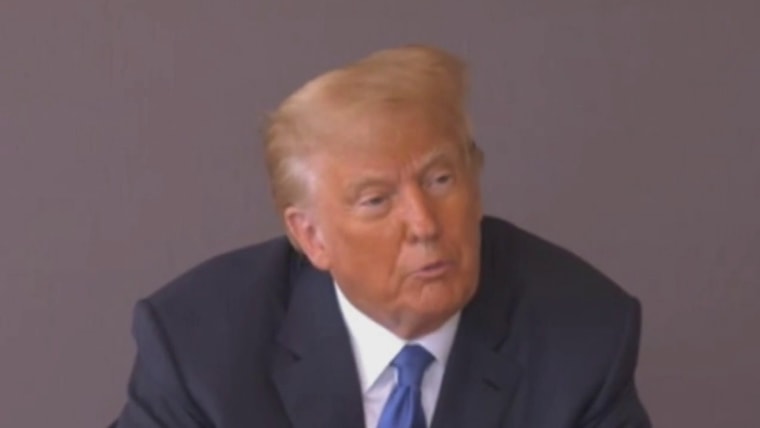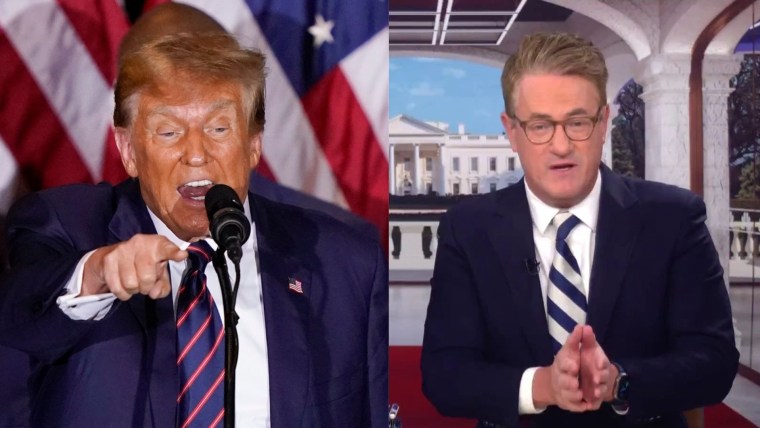Former President Donald Trump won the Iowa caucuses by a historic margin. He won decisively in New Hampshire, a state where he was supposed to fare poorly among a more moderate Republican electorate. And things are looking bright for him in South Carolina.
Trump’s success is partially a function of the reality that he’s running as a de facto incumbent; despite his 2020 loss, his base still thinks he’s got the juice. But there are also signs that he’s running a significantly smoother campaign operation than in 2016 or 2020. That improved machinery underscores how the 2024 general election — which Trump is all but certain to run in, barring a legal prohibition — could play out differently than four years ago and make President Joe Biden’s election bid harder than before.
Trump has become more deeply enmeshed in the Republican Party apparatus and more attuned to the benefits of building relationships with its important players.
Axios recently published a report explaining all the ways that Trump’s campaign looks more organized than his previous presidential campaigns and White House operation. In Iowa and New Hampshire, his campaign started setting up a strong, organized ground game a year in advance. Unlike years past, campaign operatives have not been constantly leaking embarrassing, backstabbing details to the press. They have developed an organized system for state politicians seeking Trump’s endorsement. He’s reached out to state party leaders and influenced the party’s delegate allocation rules to his advantage. He has wined and dined Republican lawmakers to secure a huge number of early endorsements and angled for those endorsements to come at strategic times.
It’s unclear what’s driving the relatively high functioning of Trump’s campaign operation, in contrast to his past campaigns and presidency. It’s unlikely that, at 77, Trump has had an epiphany on the importance of professionalism and attention to detail. What may be at play is that Trump has become more deeply enmeshed in the Republican Party apparatus and more attuned to the benefits of building relationships with its important players. He and his inner circle have become more experienced with electoral politics, and he has more connections to seasoned operatives.

In other words, while Trump still presents himself as an outsider, he’s not running as an outsider anymore. We see that not only in his efforts to return to the White House, but also in his preparation for what he would do if he were to return to it: The Heritage Foundation, a Beltway think tank, is helping prepare extensive plans for him to hire an army of yes men and radically reshape the federal bureaucracy in Washington from the day he enters office.
It would be a mistake to assume that Trump has struck upon a kind of new, unerring discipline. He remains impulsive, fickle and inclined to rage-post on social media. His powers as a rhetorician may be in decline as his speeches grow ever more discursive and his agenda is ever more defined by a thirst for personal vengeance. While the going is easy for him now, his general election campaign would be a much more complex effort and more likely to grow unstable as Election Day nears and pressure mounts.
But still, it would be wise for Democrats to take note of Trump’s organization and remain vigilant about his electoral acumen. It’s easy to think of 2024 as a repeat of 2020 because the major parties’ likely nominees will be exactly the same. But the race itself won’t be. The roles of incumbent and challenger have reversed; the economy and society have changed in significant ways in the past few years; there’s increased support for third-party candidates; and Biden is now encumbered with the task of motivating a base that has become divided over his policies on issues such as the Israel-Hamas war. Even a slightly better-run Trump operation could make a difference at the margins in battleground states. All the more reason for Biden not to think purely in defensive terms when strategizing about how to win 2024.

